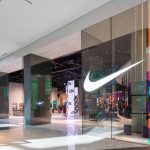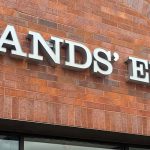Puma AG's Q3 sales declined 5.5% to €673.4 million ($1.00 bn), according to the quarterly report from the company's parent, PPR S.A. At constant exchange rates, sales were down 9.8%, a decline that PPR'S Deputy CEO and CFO Jean-Francois Palus said was “credible” given the lack of sporting events this year and the 9% growth posted in Q3 last year.
Sales of both Puma's lifestyle and running business units were “roughly unchanged,” while motor sport and team sport were down in the period. The basics business unit was up. Sailing and swimwear posted “solid growth.”
Sales declined 13% in footwear, 5% in apparel and 8% in accessories. In the first nine months, footwear accounted for 55% of sales versus almost 58% last year.
By region, sales in the Americas fell 11.4%. The U.S. decline was “mainly driven by lower traffic in our directly operated stores, while wholesale was quite resilient.” On the positive side, apparel saw continued growth in the period in the Americas and the “running business unit continues to trend up.”
Trading in Latin America was affected by difficulties in importing products, due to country protection and local anti-dumping measures as well as by a drop in tourism due to the swine flu. Argentina, Chile, and Mexico “once again achieved a very strong performance.”
Sales in Puma's EMEA region declined 10%. Western Europe was “sluggish” with a shift from preorder to at-once purchasing by wholesale customers due to cautious inventory management. Eastern Europe, Middle East, and Africa continued to post solid double-digit growth with “another very good performance” in Africa.
Sales in Asia-Pacific were down 8.3% despite double digit growth in China and a good performance in India. Trading in this region was “still somewhat affected by excess inventory by all major brands,” said Palus.
Palus noted that Puma initiated a major restructuring and reengineering program a few months ago to realign its cost structure. “This optimization of our business platform has already borne early fruits in operating expenses, working capital, and free cash flow. It continues to yield additional efficiencies and cost savings,” said Palus. “Besides, further actions are being taken to constantly readjust our cost structure to the actual scale of our business.”
He also indicated that Puma's inventories are ahead of schedule due to aggressive liquidations.
Puma AG is 70% owned by PPR, which also owns Gucci, Yves Saint Laurent and several French retail chains. Overall, PPR's sales declined 7.6% due to weaker demand for furniture and luxury goods.













